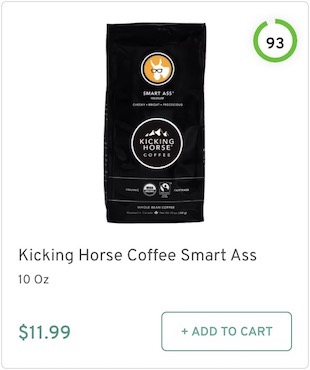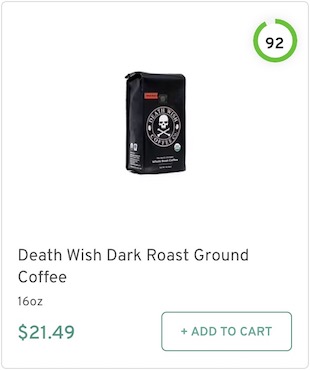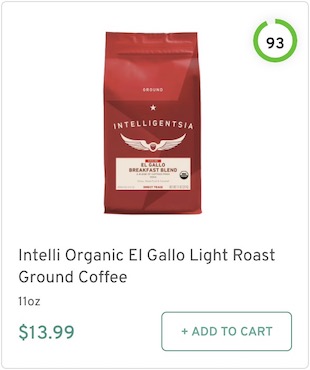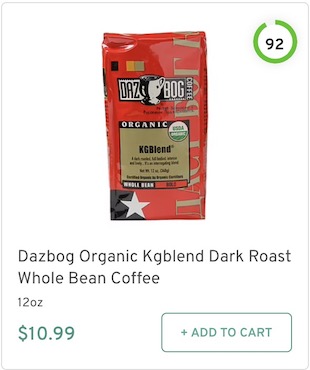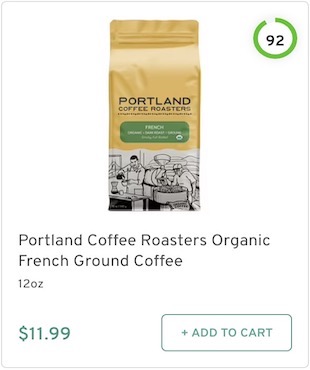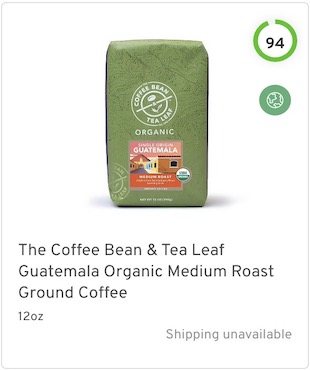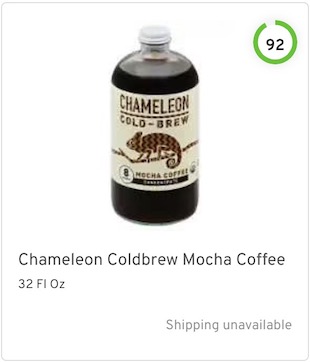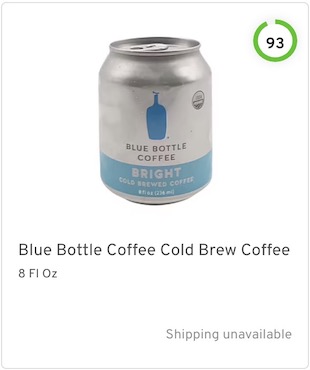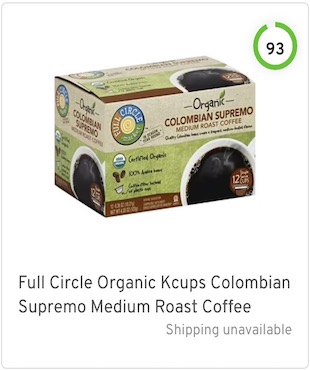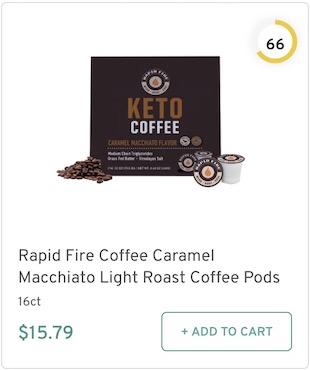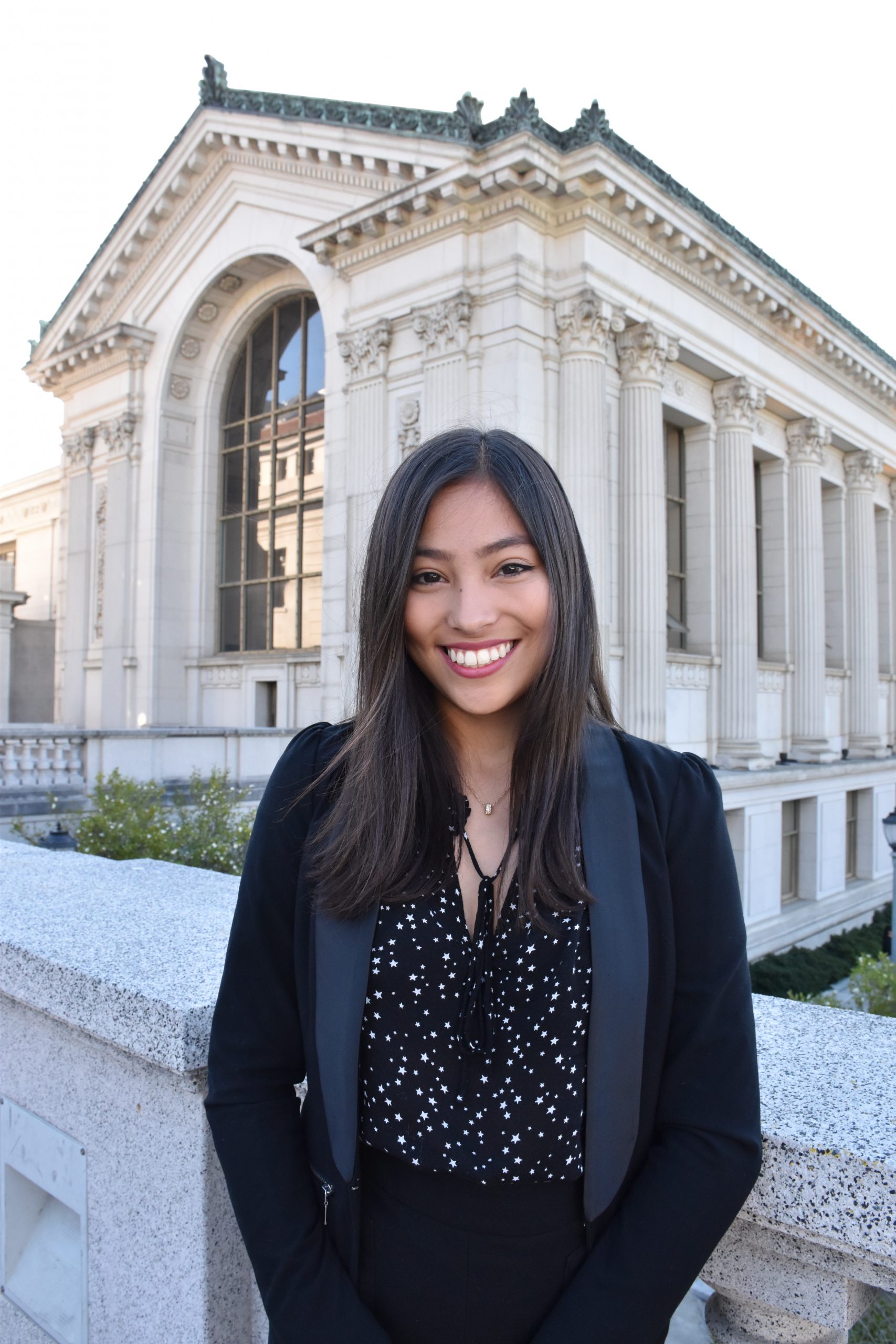Try our new free GreenChoice - Food Scanner mobile app!
DOWNLOAD-
-
-
Diets
Allergies
Take our 30-second quiz & we’ll filter our site to show only products that match your dietary preferences.
- GCNow
- 10 Organic Coffee Brands that Help Your Morning & the Planet
10 Organic Coffee Brands that Help Your Morning & the Planet
Authors: Katherine Stallard, Sydney Wexler and Merve BasogluPublished: August 12, 2021
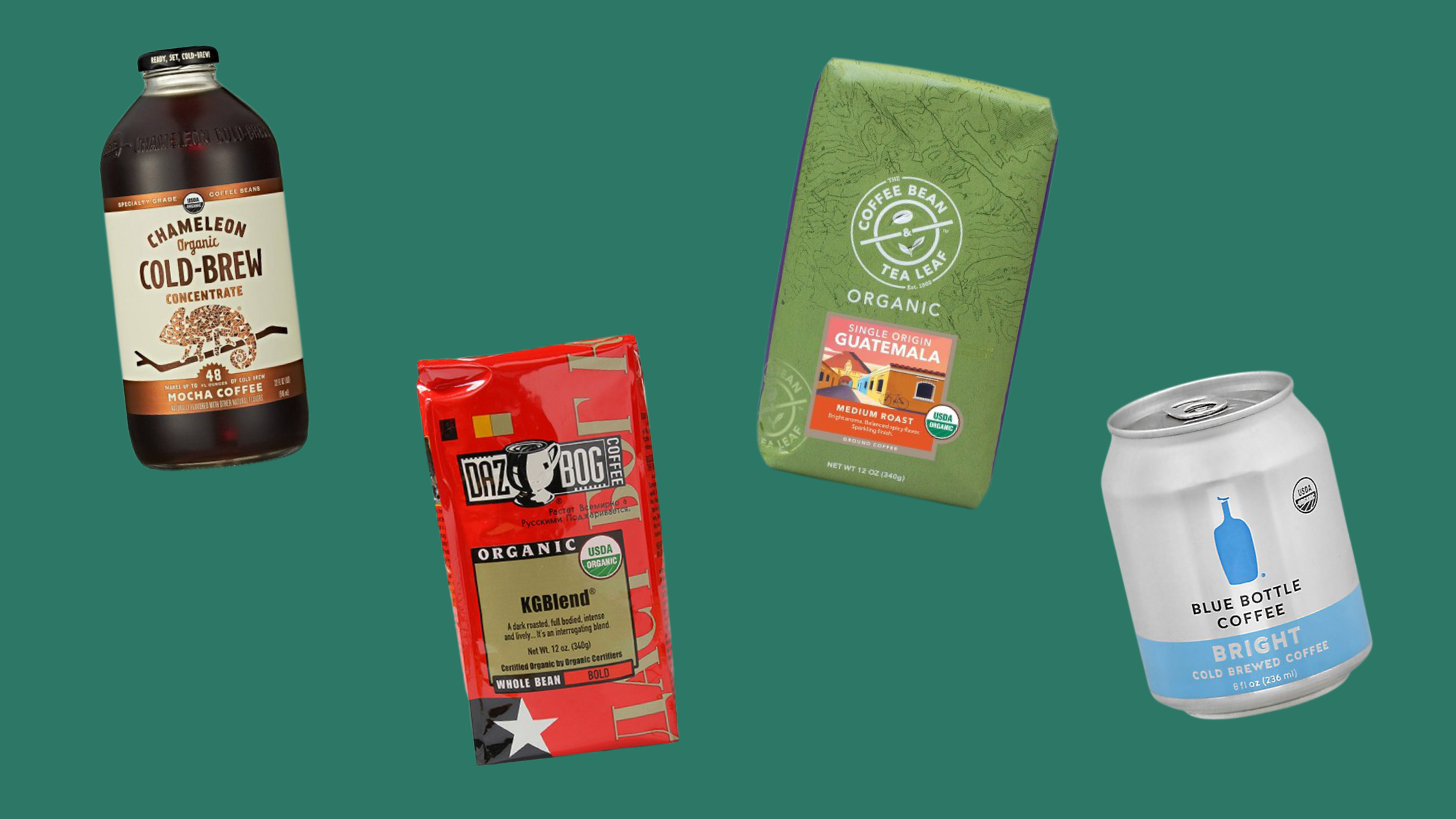
When it comes to coffee, people usually know what they want and how they want it.
Whether it’s a dark roast or a cold brew, coffee fuels a majority of the American population with 62% of people drinking at least one cup of coffee a day (1).
There is no shortage of coffee types and brands out there, but sometimes it’s hard to distinguish the quality coffees worth your money from ones that don’t quite hit the mark. When choosing between a blonde roast, an espresso, or a latte, the label “organic” on a coffee is just one of the many distinguishing traits a coffee can have.
Many products in our supermarkets call themselves organic, and it can be hard to figure out what “organic” truly means for coffee and why it’s important.
Conventional coffee production, as with any process that isn’t organic, often puts farmworkers at risk for dangerous chemical exposure to pesticides. It can also lead to toxic runoff that pollutes soils and contaminates our water streams (2).
While the “organic” label can mean different things based on its claims and differing USDA certification requirements, the term is meant to distinguish products that do not use any pesticides.
The organic label also recognizes coffee producers that promote the sustainable use of natural resources, preservation of the environment, animal welfare, and human health (3).
If you’re on the hunt for a high-quality coffee that makes a positive impact on your morning and on the planet, this list of our top 10 sustainable organic coffee brands will have you well on your way to your new favorite brew.
How to choose organic coffee
When choosing, here are some things to consider:
- An “Organic” certification. The appearance of an organic label on a product might lull you into a false sense of security. While a USDA organic certification may hold some weight, it shouldn’t always be the deciding factor. The USDA certifies anything that contains a minimum of 95% organic ingredients as organic, but that doesn’t necessarily mean every step in the coffee production process is sustainable. Make sure to do your research to ensure your organic coffee is up to snuff (4).
- Fair Trade Label. A Fair Trade or Rainforest Alliance Certified Label is a good signifier of not only how the coffee is sourced but also how its harvesters and workers are treated. Low wages and poor working conditions are not uncommon in traditional coffee production, and labels by Fair Trade Certified, Fair for Life, The Fairtrade System, Naturland Fair, Small Producers’ Symbol, or a Rainforest Alliance Certified will help you make a more informed choice. A product undergoes third-party review to acquire any of these certifications, verifying that it meets standards related to sustainable agricultural practices and fair labor (5, 6).
- Pesticides. Although coffee that’s organic doesn’t use chemical pesticides, it can still use natural pesticides. Conventional coffee is heavily chemically treated, and the use of natural forms of pesticide as opposed to chemical ones is better for the crop and better for you. Look beyond the label and do your research to find out more about natural vs. chemical pesticides to decide what organic coffee brands you’re comfortable with (7).
GreenChoice Picks
1. Kicking Horse Coffee Smart Ass
Kicking Horse’s medium blend coffee is certified organic and Fair Trade. It has bright and chocolatey undertones.
2. Death Wish Dark Roast Ground Coffee
This dark roast ground coffee is certified organic by USDA. In addition, Death Wish sources their Fair Trade certified beans from India and Peru. It has notes of dark chocolate and cherry.
3. Intelligentsia El Gallo Light Roast Ground Coffee
This USDA-certified breakfast blend is collected from Ethiopia and Nicaragua. Most of the Intelligentsia coffee beans are bought directly from farmers.
4. Dazbog Organic Kgblend Dark Roast Whole Bean Coffee
This organic certified dark roast coffee has great acidity and a hearty flavor. However, it doesn’t have Fair Trade certification.
5. Portland Coffee Roasters Organic French Ground Coffee
Portland Coffee Roaster’s dark roasted coffee is certified organic. The brand prioritizes Fair Trade, and Rainforest Alliance-certified coffees and purchases most of their coffee directly from farmers.
More Organic Coffee
6. The Coffee Bean & Tea Leaf Guatemala Organic Medium Roast Ground Coffee
These single-origin coffee beans are collected from Guatemala and certified organic. The coffee beans are sourced directly from farmers but are not certified Fair Trade. They have bright honey and caramel notes.
7. Chameleon Coldbrew Mocha Coffee
This organic mocha coffee has milk chocolate and toffee notes. Under their sustainability programs, Chamelon supports coffee-producing families at a variety of locations where they source their coffee.
8. Blue Bottle Coffee Cold Brew Coffee
This bright cold-brewed coffee is certified organic by CCOF and USDA. Blue Bottle doesn’t source its coffee solely from Fair Trade certified cooperations.
.
9. Full Circle Organic Kcups Colombian Supremo Medium Roast Coffee
These medium roast coffee pods contain 100% Arabica beans. They are certified organic by the USDA. The pods are made from coffee filters instead of plastic cups. The ground coffee is compostable, and the cup and filter are recyclable with plastic.
10. Rapid Fire Coffee Caramel Macchiato Light Roast Coffee Pods
Rapid Fire coffee pods are made with organic coffee beans. Each pod has butter, MCT oil, and coconut oil for those who like to start their day with a cup of ketogenic coffee. The capsules are recyclable at home.
.
Key takeaways for choosing organic coffee
Coffee is an essential part of many an American’s day, and with so many types out there to choose from, organic coffee can get overlooked as an option.
Despite the variety of flavors, roasts, and brands at your local grocery stores, organic coffee has a unique set of benefits for not only you but for coffee harvesters and the environment.
When choosing a sustainable coffee, it’s important to do your research. Signifiers like organic can be unreliable, and organic isn’t synonymous with sustainable or even necessarily entirely pesticide-free, even if they are naturally derived.
Look beyond the label to ensure the coffee you consume aligns with your values.
It’s also important to consider the social impact of the coffee you choose. One of the best ways to do that is to look for a Fair Trade label. There are a variety of labels to look out for to signify fair trade, but choosing a product with a fair trade certification will verify the fair working conditions the workers harvesting the coffee work under and that the production of the coffee is sustainable.
When looking for an organic coffee in the future, keep these tips in mind and consult our list when searching to help lead you to your next favorite coffee.
***
GreenChoice, PBC has evaluated and rated more than 340,000 food & beverage products across hundreds of attributes related to diet, health, and sustainability. Easily find the best products for you, the planet, & your budget. Download the free GreenChoice app for Apple iO or Android!


